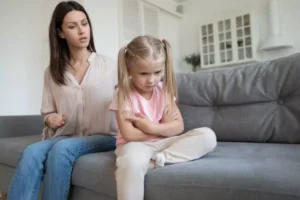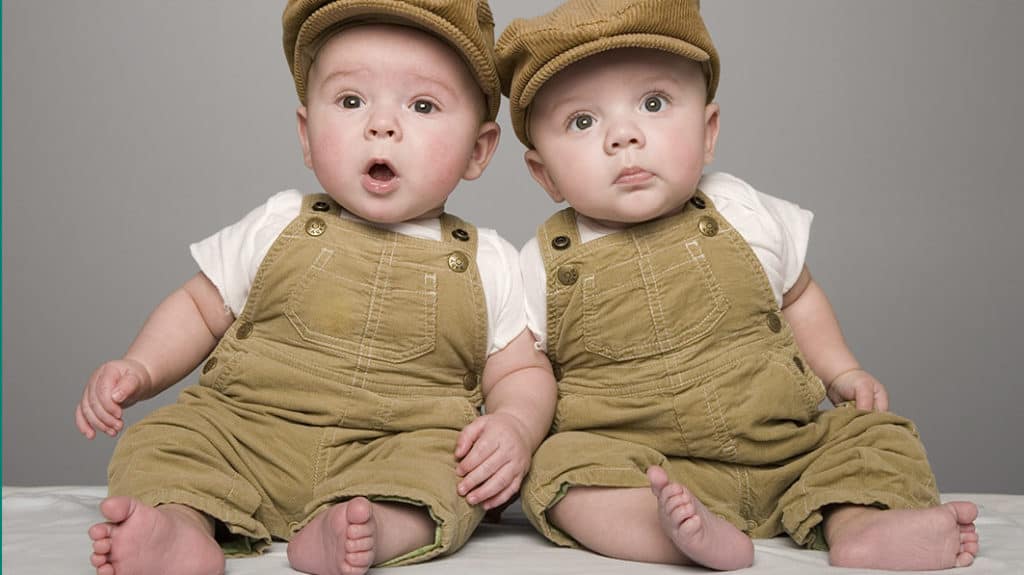
Strong-Willed Women Mothering Strong-Willed Children
If you’re a strong-willed woman, it can be tough to parent a younger version of yourself. But you also have a definite advantage… you know what it’s like to be a strong-willed child.

Comparing a child’s development isn’t necessarily a bad thing, but when parents become competitive, the result can be troublesome.
When Joni Nilson was a new mother, she worried her daughter would not reach developmental milestones according to her expectations. “My mom had to keep reminding me that each child is different,” Joni says.
Comparing a child’s development with other children is not necessarily a bad thing, but when parents become competitive, the result can be troublesome, according to family counselor Jill Hutchins. Too often, competitive parents see early development as a sign of intelligence or a reflection of good parenting, but it’s neither. Each child has his own God-given developmental pace; being “ahead of schedule” is no indication that he’ll be a candidate for Mensa membership (IQ in the top 2 percent) or identified for a gifted and talented program.
Another young mom, Amy, realized how hurtful comparisons were when she, her sister and her sister-in-law had babies within six weeks of each other. “Of the three cousins, my son really did talk first, walk first, everything,” Amy says. “I thought it was OK to brag about how fast he was growing.” It took an unpleasant conversation with her brother before Amy understood that her progress reports sounded like one-upmanship. “I apologized, but now I feel as though I can’t talk about this important part of my life.”
The novelty of comparing children rarely wears off, even within sibling groups. Joni still checks her fourth child’s development against her other children’s at that stage. The difference is that Joni knows her daughter will reach each developmental milestone at her own pace.
Joni says, “Now, when I see a baby doing something earlier than I’d expect, I think, Wow! How interesting!”
—Bridgette Booth
1. Know your audience. I have a short list of people to whom I can brag about my child’s development, people such as grandparents, aunts and uncles. Outside that list, I answer questions about my child’s development in a matter-of-fact manner: “My daughter began crawling at 4 months.”
—Renae Brumbaugh
2. Find a creative way to say it. I discovered that blogging from my baby’s point of view relieves my desire to tout his accomplishments. I knew friends wouldn’t be offended by Lawson saying, “At 6 months, I am not crawling yet, but I am loving that Mama is feeding me carrots, sweet potatoes, cereal and prunes. I can say dada, ma, ooh and hi.”
—Pamela Dowd
3. Be sensitive. I called a friend and said, “Last week, your son said his first word, and now this week my son took his first step!” I was sensitive to my friend’s feelings and emphasized that both of our kids were developing in different areas.
My husband told a co-worker, “My son is only 18 months old and already potty-trained.” Knowing his friend’s son had stopped using a pacifier, he added, “Could you give me some advice on how to get my son to give up his buddy?”
We learned that we could share our children’s stages wisely if we were sensitive to the developmental growth of other children.
—Marcy Lytle
4. Show techniques. My friend was amazed at how well my daughter spoke at age 2. Her own 2-year-old, Jonny, only used grunts and whines. I knew my child’s communication skills were developing through the use of simple sentences and short words. I found that giving children a choice of two short words helps them communicate. So when my friend’s son approached us, I demonstrated my technique. I said, “Juice or milk?”
“Juice,” Jonny replied.
—Rhonda DeYoung
5. Ask questions. When people share with me about their children, I’m often thinking of what I’d like to say about my own child. To avoid this tendency, I’ve started listening intently and asking follow-up questions or giving a compliment. I now offer at least three positive comments about other kids before I add one about my child.
—Jami Kirkbride